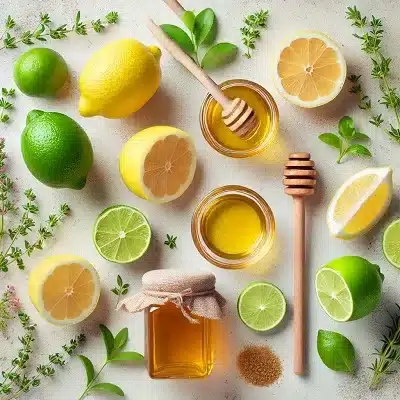With the rise in health-conscious consumers, the label “all-natural” has become a popular selling point in everything from snacks to skincare. But not everything labeled as “natural” is automatically beneficial—or even safe. Understanding what truly qualifies as “all-natural” and what to watch out for can help you make better-informed choices about the products you use and consume. Here, we’ll tackle some common myths about all-natural ingredients, clarify what they mean, and offer tips on what to look for and avoid.
Myth #1: All-Natural Ingredients Are Always Safe
One of the most pervasive myths is that if an ingredient is natural, it must be safe. While many natural ingredients do offer health benefits, some can cause adverse effects, especially for those with sensitivities or allergies. For example, certain essential oils, like tea tree and eucalyptus, can be irritating when used directly on the skin. Additionally, naturally occurring substances like lead or arsenic exist in the environment but are far from safe for human consumption.
What to Look For: Check for third-party certifications or safety testing if you’re unsure about an ingredient’s safety. Companies that provide transparency in their ingredient sourcing and testing can help give you peace of mind.
Myth #2: “All-Natural Ingredients” Equals Chemical-Free
The term “chemical-free” often accompanies “all-natural” marketing, creating the impression that anything natural is devoid of chemicals. In reality, everything, even water, is composed of chemicals. Many safe, natural ingredients—such as citric acid from citrus fruits or acetic acid in vinegar—are chemicals by definition. The goal is not to avoid chemicals but to ensure that those chemicals are safe and naturally sourced, rather than synthetic or harsh additives.
What to Look For: Instead of focusing on “chemical-free,” look for ingredient lists with recognizable sources and no artificial preservatives, colors, or fragrances. Labels such as “non-GMO” and “organic” can indicate a commitment to naturally derived ingredients, even if they include naturally occurring chemicals.
Myth #3: If It’s Labeled “All-Natural,” It’s Free of Additives
Many people assume “all-natural” means a product is pure and unprocessed, but this isn’t always true. Some natural products are minimally processed, which can still alter their nutritional or chemical composition. For example, fruit-flavored drinks may be labeled “natural” because they contain real fruit juice, but they may also include high amounts of added sugar. Similarly, “natural flavors” can legally include dozens of compounds, some of which are derived from unexpected sources like animal products.
What to Look For: Look for “100% natural” or “no artificial additives” on the packaging, and review ingredient lists. Be cautious with vague terms like “natural flavors” and do some research on the company’s sourcing standards.
Myth #4: All-Natural Products are Always Healthier
Just because a product is natural doesn’t mean it’s healthier. High-calorie, high-fat foods like coconut oil and honey are natural but should be consumed in moderation. The same goes for products with natural sweeteners. Natural doesn’t equate to low-calorie or low-sugar. When it comes to nutrition, always consider the product’s full ingredient and nutritional profile, rather than relying solely on “all-natural” as an indicator of healthiness.
What to Look For: Consider the overall nutritional value, including sugars, fats, and calorie content. Natural sweeteners like agave and stevia can be a better choice, but moderation is key.
Navigating the “All-Natural” Landscape
The term “all-natural” is widely used but often misunderstood. By educating yourself on the myths surrounding natural ingredients, you can make smarter, healthier choices and avoid falling prey to misleading marketing. Look beyond the label, research ingredients, and make sure you know what you’re putting in your body or on your skin. In the end, the best products are those that prioritize transparency and provide genuinely beneficial ingredients, helping you embrace a lifestyle that’s truly good for you—naturally.

